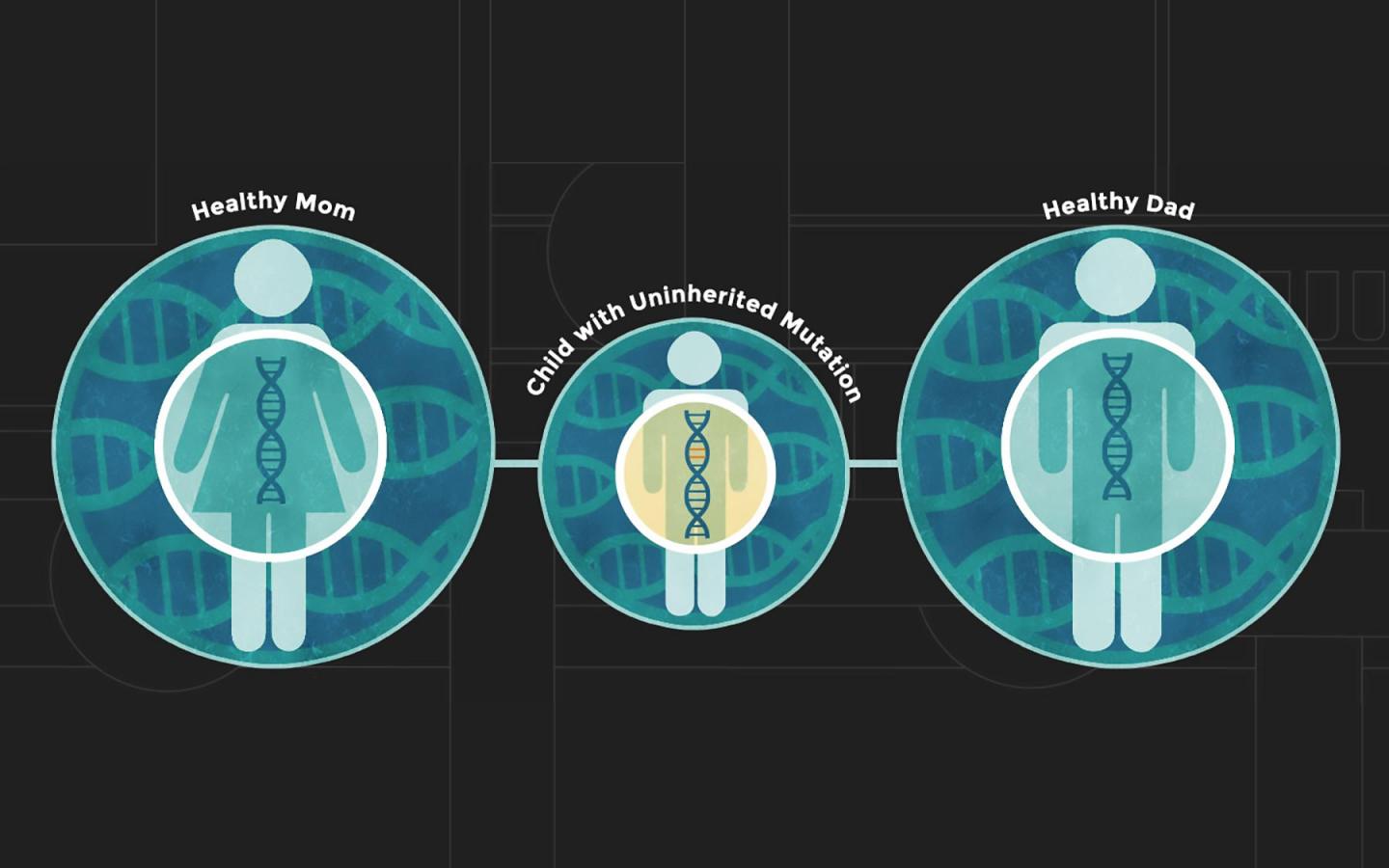DNA Mutation Linked to Impaired Motor Skills in Children on the Autism Spectrum
Written by |

Mutations that appear in a child which are not present in either parent -- called de novo mutations -- can be important in autism. Severe, gene-disrupting de novo mutations are thought to be capable of causing the disorder in certain instances. New research shows that diminished motor skills, like low non-verbal IQ, correlate with the severity of de novo mutations. More broadly the study calls attention to role played by genetics in diminished cognitive functions in children across the autism spectrum. Credit: Dept. of Public Affairs, Cold Spring Harbor Laboratory
A certain type of DNA mutation is related to impaired motor skills in children with autism spectrum disorders (ASD), including fragile X.
The research behind that finding, “Damaging de novo mutations diminish motor skills in children on the autism spectrum,” was published in the journal Proceedings of the National Academy of Sciences (PNAS).
De novo mutations are DNA alterations in a germ cell (egg or sperm) of one of the parents, or that occur in the fertilized egg during embryonic development and are not inherited from the parents; rather, they appear for the first time in the child.
ASD has a strong genetic basis and fragile X syndrome accounts for its primary single genetic cause. Previous research has shown that the most severe type of de novo mutations, likely gene disruptive, correlate with lower non-verbal IQ in individuals with ASD. In contrast, researchers failed to find any associations between ASD phenotypes and missense mutations — substitutions of a single DNA “piece” — which also are prevalent in ASD.
Cold Spring Harbor Laboratory and New York Genome Center, and University of Pennsylvania researchers wanted to understand if damaging de novo mutations could have broader neurological effects than ASD alone.
The team analyzed data from the Simons Simplex Collection, a set of 2,760 families with a single child affected by ASD, among which 2,446 have exome sequencing data available. Researchers were able to identify 3,403 de novo mutations of all types.
”This study is part of our continuing attempt to link damaging de novo mutations to broad neuropsychiatric effects in children on the autism spectrum,” researchers wrote.
The results revealed that diminished motor skills, like lower IQ, also significantly correlate with de novo mutations in ASD, accounting for an even more sensitive indicator than IQ of the damage of a de novo mutation.
“Diminished motor skills appear to be an almost universal property of children with autism,” Michael Wigler, PhD, one of the study’s senior authors and a professor at Cold Spring Harbor Laboratory, said in a press release.
“We use this finding to propose a combined classification of phenotypic severity: mild (little impairment of either), moderate (impairment mainly to motor skills), and severe (impairment of both IQ and motor skills),” the researchers wrote.
Unlike motor skills or IQ, the investigators did not find evidence of a link between the core behavioral components of ASD — impaired social skills and communication — and the presence or severity of de novo mutations.
Researchers believe that children with autism caused by inherited factors present less cognitive damage than cases of severe de novo mutations, Wigler said.
Therefore, unlike de novo mutations, inherited factors in ASD will have low overall cognitive impact, as well as reduced impairment of motor skills relative to core behavioral components.
However, Wigler noted that the broad consensus of diminished motor skills in ASD indicates that factors causing the core behavioral deficits also lead to general cognitive dysfunction. “As such, objective assessment of cognitive function should be a facet of any clinical evaluation of the patient and included when monitoring therapeutic response,” he said.





